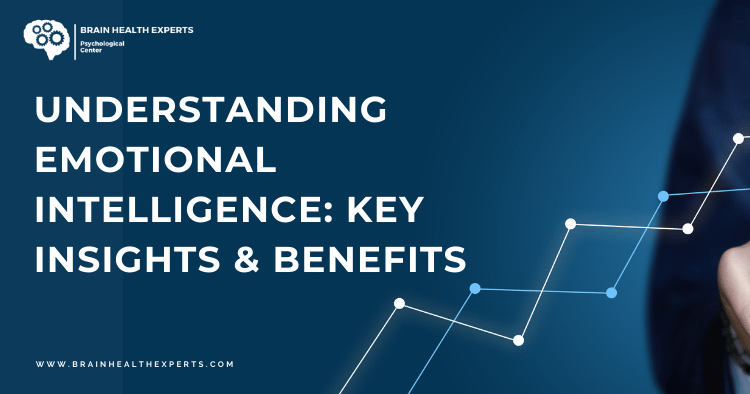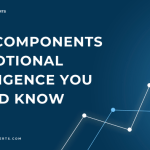Table of Contents
- What is Emotional Intelligence?
- The Components of Emotional Intelligence
- Why is Emotional Intelligence Important?
- Benefits of High Emotional Intelligence
- How to Develop Emotional Intelligence
- FAQs about Emotional Intelligence
- Conclusion
What is Emotional Intelligence?
Emotional Intelligence (EI) refers to the ability to recognize, understand, manage, and effectively use emotions in ourselves and others. Unlike IQ, which primarily measures cognitive abilities, EI focuses on how we navigate social complexities and make personal decisions that achieve positive results. The term was popularized by psychologists Peter Salovey and John D. Mayer in the early 1990s and later brought into the mainstream by Daniel Goleman through his book, “Emotional Intelligence: Why It Can Matter More Than IQ.”
Emotional Intelligence is about being smart with feelings—both your own and those of others.
In essence, it encompasses a variety of skills that affect how we interact with others, cope with challenges, and make decisions.
The Components of Emotional Intelligence
Emotional Intelligence is typically divided into five key components:
| Component | Description |
|---|---|
| Self-Awareness | The ability to recognize and understand your own emotions, strengths, weaknesses, values, and drives. |
| Self-Regulation | The capacity to manage your emotions and impulses, maintaining control and adaptability in various situations. |
| Motivation | A passion for work that goes beyond money or status, driven by a desire to fulfill one’s own inner needs and goals. |
| Empathy | The ability to understand and share the feelings of others, allowing for more effective communication and connection. |
| Social Skills | Proficiency in managing relationships and building networks, enabling effective teamwork and conflict resolution. |
These components work together to create a holistic understanding of how we interact with ourselves and others.
Why is Emotional Intelligence Important?
Emotional Intelligence plays a crucial role in our personal and professional lives. Here are a few reasons why it’s essential:
- Improved Communication: High EI enhances our ability to communicate effectively, leading to better relationships at work and home.
- Stronger Relationships: When you understand your own emotions and those of others, it fosters deeper connections and trust.
- Better Conflict Resolution: Individuals with high EI can navigate conflicts with a calm demeanor, understanding different perspectives and finding common ground.
- Increased Empathy: Higher empathy levels allow for more compassionate responses, which can significantly improve team dynamics.
- Enhanced Leadership Skills: Leaders with strong Emotional Intelligence are often more effective, as they can motivate and inspire their teams through understanding and support.
For further reading on the importance of Emotional Intelligence, check out Harvard Business Review.
Benefits of High Emotional Intelligence
The benefits of high Emotional Intelligence extend into various aspects of life. Here are some key advantages:
- Career Advancement: Employees with high EI tend to perform better, receive more promotions, and earn higher salaries. Employers increasingly value EI in leadership roles.
- Mental Health: High EI is linked to better mental health, as it involves recognizing emotional triggers and managing stress effectively.
For effective stress management techniques, consider exploring proven stress management techniques for daily relief and stress reduction techniques for students.
- Better Decision Making: Understanding emotions leads to more informed decisions, as it allows individuals to consider not just facts, but also feelings and implications.
- Adaptability: People with high EI are generally more adaptable to change, as they can manage their emotional responses to new challenges.
- Team Collaboration: High EI fosters a sense of community and collaboration within teams, leading to increased productivity and job satisfaction.
For tips on fostering positive thinking in the workplace, see ways positive thinking boosts workplace success.
How to Develop Emotional Intelligence
Developing Emotional Intelligence is a lifelong journey, and there are several strategies you can employ:
- Practice Self-Reflection: Take time to reflect on your emotions and reactions. Journaling can be a helpful tool for this.
- Seek Feedback: Encourage friends or colleagues to share their perspectives on your emotional responses and communication style.
- Mindfulness and Meditation: Practicing mindfulness can enhance self-awareness and emotional regulation.
Apps like Headspace or Calm can guide you. Additionally, consider powerful meditation techniques for effective stress relief.
- Empathy Exercises: Engage in activities that encourage perspective-taking, such as volunteering or active listening exercises.
- Emotional Vocabulary: Expand your emotional vocabulary by learning to identify and articulate your feelings more precisely.
For more detailed strategies, you can explore Psychology Today.
FAQs about Emotional Intelligence
- Can Emotional Intelligence be learned?
Yes, Emotional Intelligence can be developed and improved over time with practice and dedication. - Is Emotional Intelligence more important than IQ?
While both are important, many studies suggest that EI can be a better predictor of success in personal and professional relationships. - How do I know if I have high Emotional Intelligence?
Self-assessment, feedback from others, and emotional awareness exercises can help gauge your EI level. - Can Emotional Intelligence improve my relationships?
Absolutely! High EI fosters better communication, empathy, and conflict resolution, all of which are essential for healthy relationships.
Conclusion
Emotional Intelligence is a vital skill that influences our interactions, decisions, and overall quality of life. By understanding its components, recognizing its importance, and actively working to develop our EI, we can enhance our relationships, improve our mental health, and achieve greater success in our careers.
Whether you’re a leader, a team member, or simply looking to enhance your personal connections, investing in Emotional Intelligence is a decision that will pay dividends for years to come.
Embrace the journey of self-discovery and emotional mastery, and watch how it transforms your life!
For more insights on Emotional Intelligence, visit Verywell Mind.




